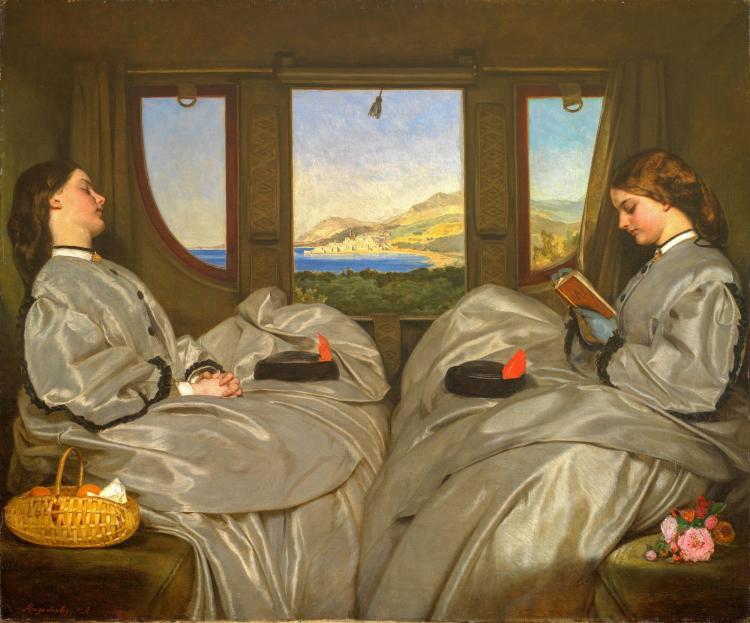Edited to add: Margaret at Booksplease tells me that the artist is John Littlejohns, a Cornish artist.
The body of the part-owner of a garage business, Jack Clayton, is discovered in a car in the garage and because of the circumstances it's assumed he's committed suicide via carbon monoxide poisoning. Inspector Meredith of the Cumbrian police is not convinced though. The man was clearly just about have a meal, why would he suddenly decide to go and kill himself? He was engaged to be married too, a contented man by all accounts. Meredith checks the Clayton's bank account and is surprised to discover that the part-owner of a garage that's only doing averagely well has rather a large nest egg. Further enquiries bring forth the information that he and his fiance were going to emigrate to Canada after the wedding but that his partner in the business, a man named Higgins, was unaware of this.
Meredith soon has his prime suspects but is distracted by their involvement in what might be a petrol delivery scam. Really he has two cases to solve and everyone involved in one case seems to be involved in the other. Surely they must be connected? Meredith's task is to find that connection and then prove it. Easier said than done.
OK, well this is no 1930s Agatha Christie type yarn with a body in the library or someone done away with in a stately home or on the 4.50 from Paddington. It reminded me more of Dorothy L. Sayers' writing in that it goes into clues and methods and timings in minute detail. You needed your wits about you to follow it, to be honest, and weirdly I did actually manage to do that, unlike Dorothy L. Sayers who was so clever she did sometimes lose me. Where it differs from Sayers (and Christie) is that this is very much a police procedural story which outlines how very difficult their job can be when there are few leads, or when they know who's done the deed but have to prove it so that it'll stand up in a court of law.
The Lake District setting was good but not brilliant, I didn't get an amazing sense of place but that's because these days we think of The Lake District mainly as a beautiful tourist destination (forgetting that people live and work there perhaps) whereas back then it was possibly a bit less so. This book focuses more on the everyday lives of the resident population and is thus, probably, more real. Although, where there are descriptions of the mountains and countryside they are nicely observed.
I thought this was not a bad book. Not wonderful, but not bad. For me it lacked the kind of characterisation where I identified strongly with the detective. In Sayers' books this is not lacking - I adore Lord Peter Wimsey and Harriet - and that makes for a big difference. Big enough that I give her books a four or a five on Goodreads and this one got a three. I enjoyed it well enough but wasn't transported into ecstasies by it.
There are quite a few of these reissued British Library Crime Classics around now... all with gorgeous covers but from what I can see the quality of the stories varies a bit. I own one other, Mystery in White by J.Jefferson Farjeon, a Christmas mystery which I'll be reading soon along with some other Christmas books. I'll also keep an eye out for other BLCC books as I think the idea of reissuing 'lost' crime classics from the 1930s is a really excellent one.





